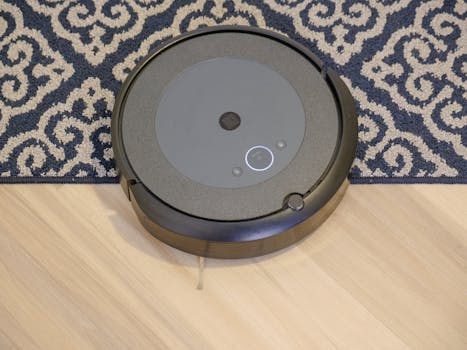
Smart Homes and Smart Living: The Technological Transformation of European Homes by 2025
Smart Homes and Smart Living are revolutionizing the way we live, work, and interact with our living spaces. As we approach 2025, European homes are undergoing a significant technological transformation, driven by the Internet of Things (IoT), artificial intelligence (AI), and home automation. In this article, we will explore the current state of smart homes in Europe, the trends and innovations shaping the industry, and what to expect in the future.
Current State of Smart Homes in Europe
The European smart home market is growing rapidly, with an estimated value of €23.4 billion in 2020. The market is expected to reach €55.4 billion by 2025, driven by increasing demand for energy efficiency, convenience, and security. Countries such as the UK, Germany, and France are leading the way in smart home adoption, with a strong focus on home automation, energy management, and home security.
Trends and Innovations in Smart Homes
Several trends and innovations are shaping the smart home industry in Europe, including:
- Voice Control: Voice assistants like Amazon Alexa and Google Assistant are becoming increasingly popular, allowing homeowners to control their smart devices with ease.
- Artificial Intelligence: AI-powered smart home systems can learn and adapt to a homeowner’s behavior, optimizing energy consumption, security, and comfort.
- Home Automation: Home automation systems integrate various smart devices, allowing homeowners to control lighting, temperature, security, and entertainment systems remotely.
- Energy Efficiency: Smart homes are becoming more energy-efficient, with devices and systems optimized to reduce energy consumption and lower utility bills.
- Security and Safety: Smart home security systems provide advanced protection against intruders, fires, and other hazards, ensuring a safe and secure living environment.
Future of Smart Homes in Europe by 2025
By 2025, European homes will be even more connected, efficient, and secure. Some predictions for the future of smart homes include:
- Widespread Adoption: Smart homes will become the norm, with most new homes incorporating smart technology and existing homes being retrofitted with smart devices.
- Increased Focus on Sustainability: Smart homes will prioritize energy efficiency, renewable energy sources, and sustainable living, reducing the environmental impact of residential buildings.
- Advanced AI and IoT Integration: Smart home systems will become even more sophisticated, with advanced AI and IoT integration, enabling seamless communication between devices and optimizing home performance.
- More Emphasis on Health and Wellness: Smart homes will incorporate features that promote health and wellness, such as air quality monitoring, noise reduction, and circadian lighting.
In conclusion, the future of European homes is smart, connected, and sustainable. As technology continues to evolve, we can expect to see even more innovative solutions that transform the way we live, work, and interact with our living spaces. Whether you’re a homeowner, developer, or simply interested in the latest smart home trends, one thing is clear: the future of smart homes is bright, and it’s arriving faster than you think.
Smart Home Devices and Systems
Smart home devices and systems are the backbone of any smart home. Some popular devices and systems include:
- Smart Thermostats: Smart thermostats learn your temperature preferences and adjust the temperature accordingly, optimizing energy consumption and comfort.
- Smart Lighting: Smart lighting systems allow you to control lighting levels, color, and temperature, creating the perfect ambiance for any occasion.
- Smart Security Cameras: Smart security cameras provide advanced surveillance, motion detection, and alerts, ensuring your home and loved ones are safe and secure.
- Smart Speakers: Smart speakers, such as Amazon Echo and Google Home, allow you to control your smart devices, play music, and access information with ease.
Benefits of Smart Homes
Smart homes offer numerous benefits, including:
- Energy Efficiency: Smart homes optimize energy consumption, reducing waste and lowering utility bills.
- Increased Convenience: Smart homes provide seamless control over various devices and systems, making it easy to manage your home and daily routine.
- Enhanced Security: Smart homes incorporate advanced security features, such as surveillance cameras, motion detection, and alerts, ensuring your home and loved ones are safe and secure.
- Improved Comfort: Smart homes optimize temperature, lighting, and entertainment systems, creating the perfect environment for relaxation and entertainment.
In conclusion, smart homes are the future of European living, offering a connected, efficient, and secure living environment. As technology continues to evolve, we can expect to see even more innovative solutions that transform the way we live, work, and interact with our living spaces.






